The new framework for reducing opioid overdose includes 19 evidence tested strategies.
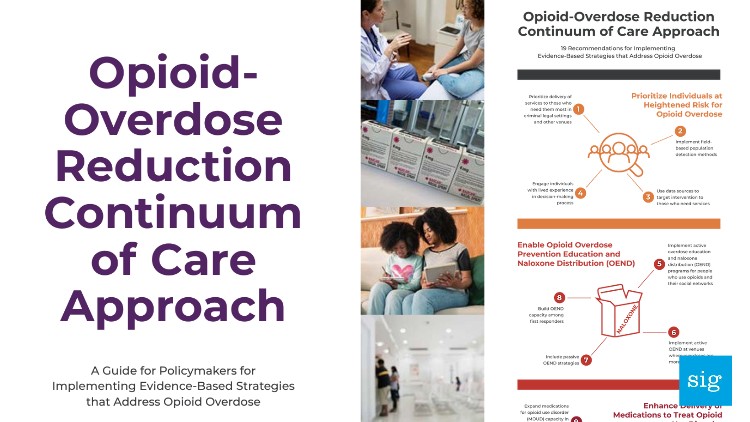
The HEALing Communities Initiative, the National Institute on Drug Abuse (NIDA) and the NIH Helping to End Addiction Long-term (HEAL) Initiative® launched the Opioid Overdose Reduction Continuum of Care Approach (ORCCA): A Guide for Policymakers for Implementing Evidence-Based Strategies that Address Opioid Overdose.
Created to aid policymakers, communities, and key stakeholders in developing comprehensive, multi-system strategies that address the opioid crisis, the guide uses findings from the HEALing Communities Study about the effectiveness of the integrated set of evidence-based practices. The science and evidence behind the framework was published in the Journal of Drug and Alcohol Dependence and outlines 19 essential evidence-based interventions to reduce opioid overdose deaths.
The guide was written as a collaboration between the HEALing Communities Study (HCS) ORCCA expert panel, the HCS Care Continuum Workgroup, the HCS Dissemination workgroup with RTI, and HEAL Connections. Those groups included New York HCS investigators and staffers Nabila El-Bassel, Tim Hunt, James David, Stephanie Marquesano, and Ryan Caldwell.
In the guide, New York HCS PI and SIG Director Nabila El-Bassel says, “In the battle against the overdose death crisis, overdose education and naloxone distribution (OEND) isn’t just a choice; it’s a necessity. It’s the bridge that connects every community and every family to the power to save lives. Naloxone can give people who use opioids the chance to live and potentially connect to recovery services when they are ready. Our HCS communities worked with New York’s already strong existing statewide naloxone distribution infrastructure to find ways to reach community saturation, battle stigma, and get naloxone in the hands of vulnerable populations and their social networks.”
Image Carousel with 6 slides
A carousel is a rotating set of images. Use the previous and next buttons to change the displayed slide
-
Slide 1: infographic showing 19 orcca recommendations
-
Slide 2: high risk individual recommendations
-
Slide 3: prevention education and naloxone distribution
-
Slide 4: medication for opioid use disorder
-
Slide 5: remove barriers
-
Slide 6: safe prescribing
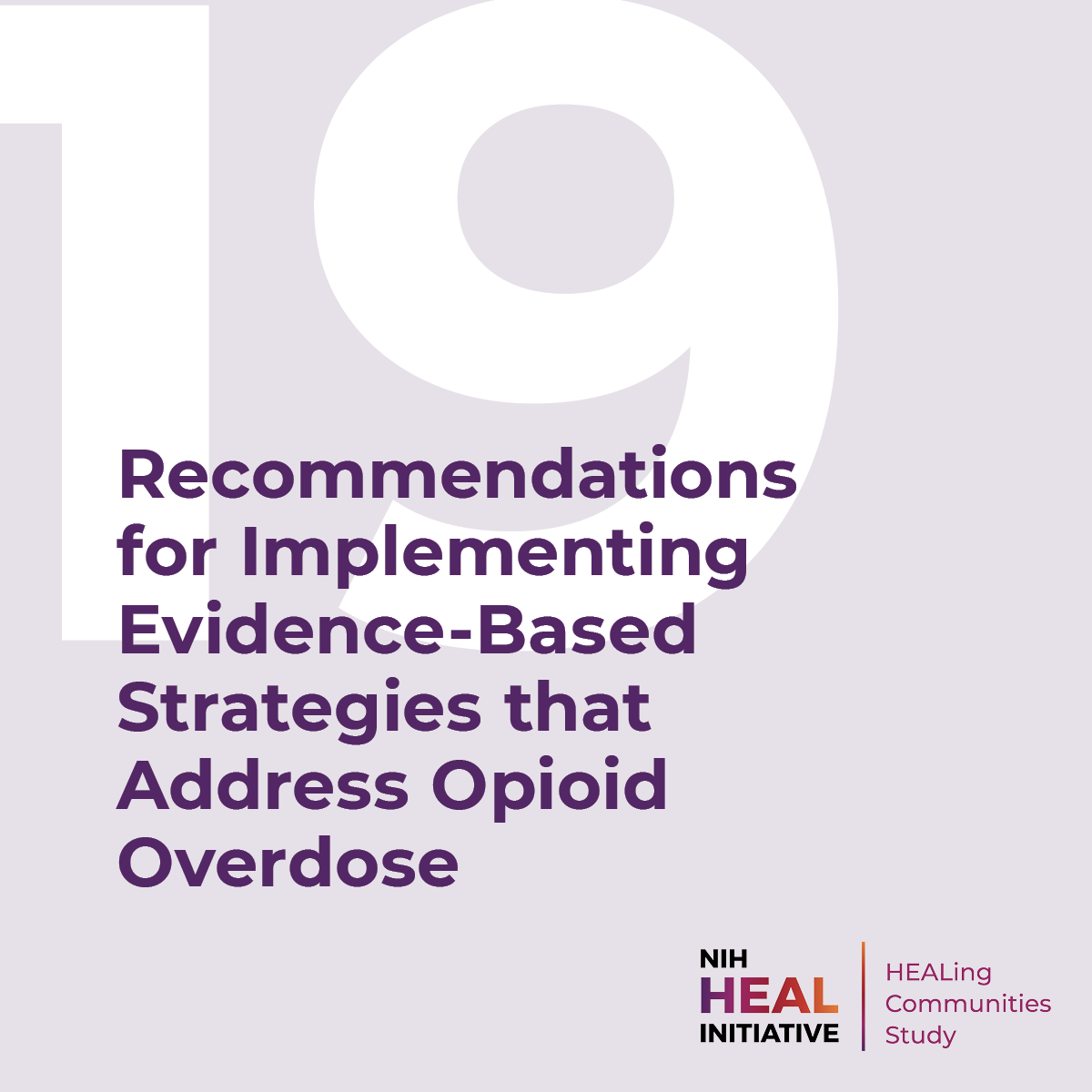
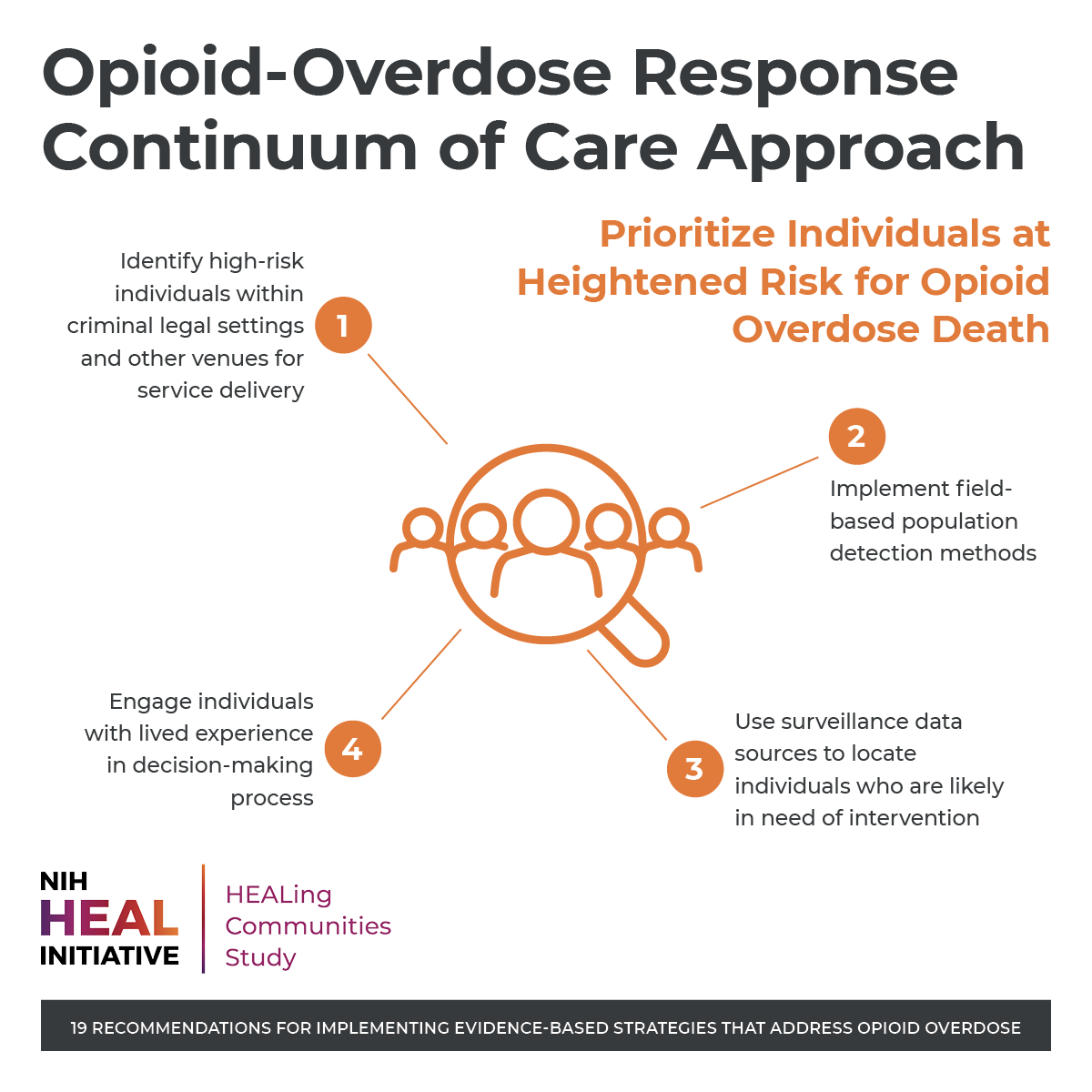
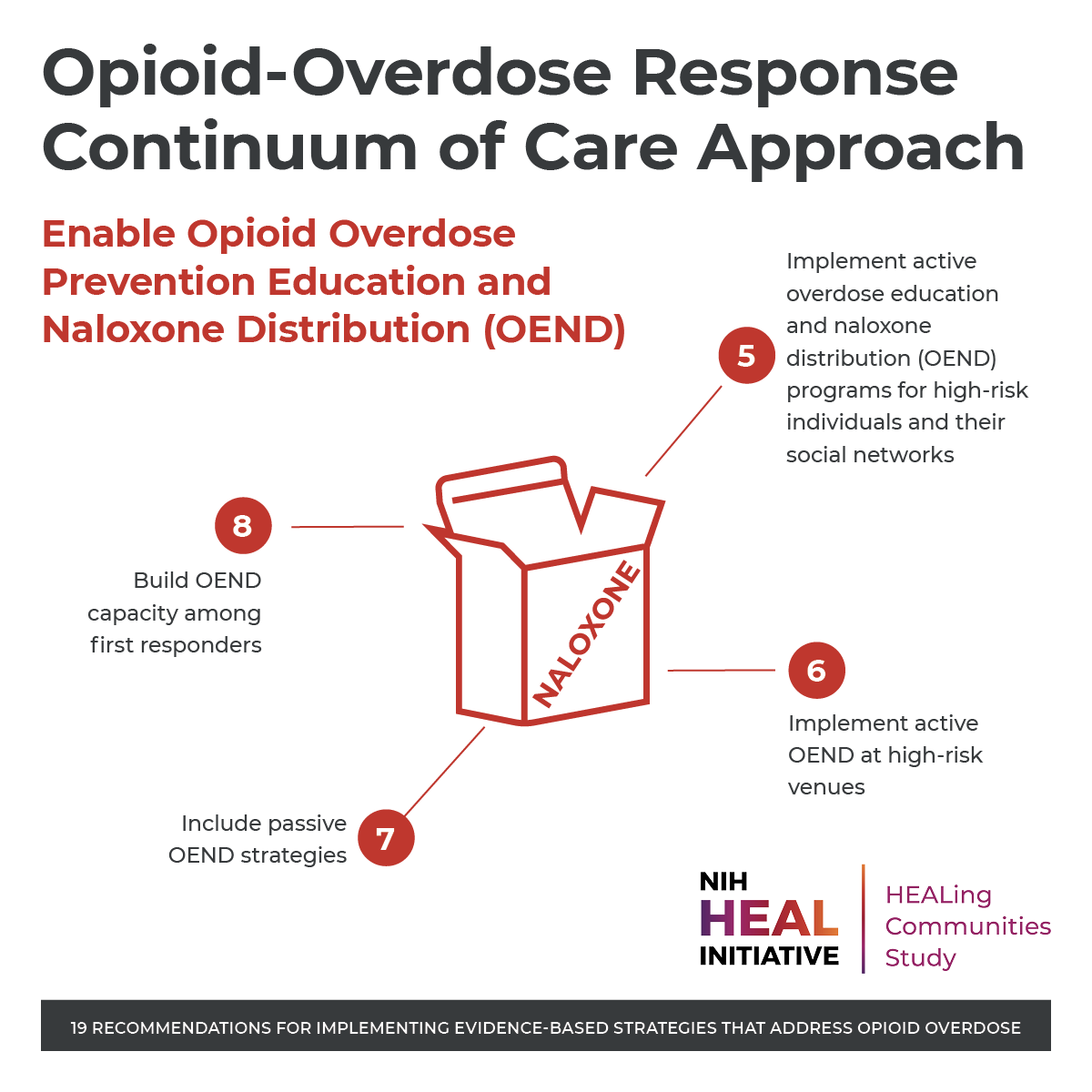
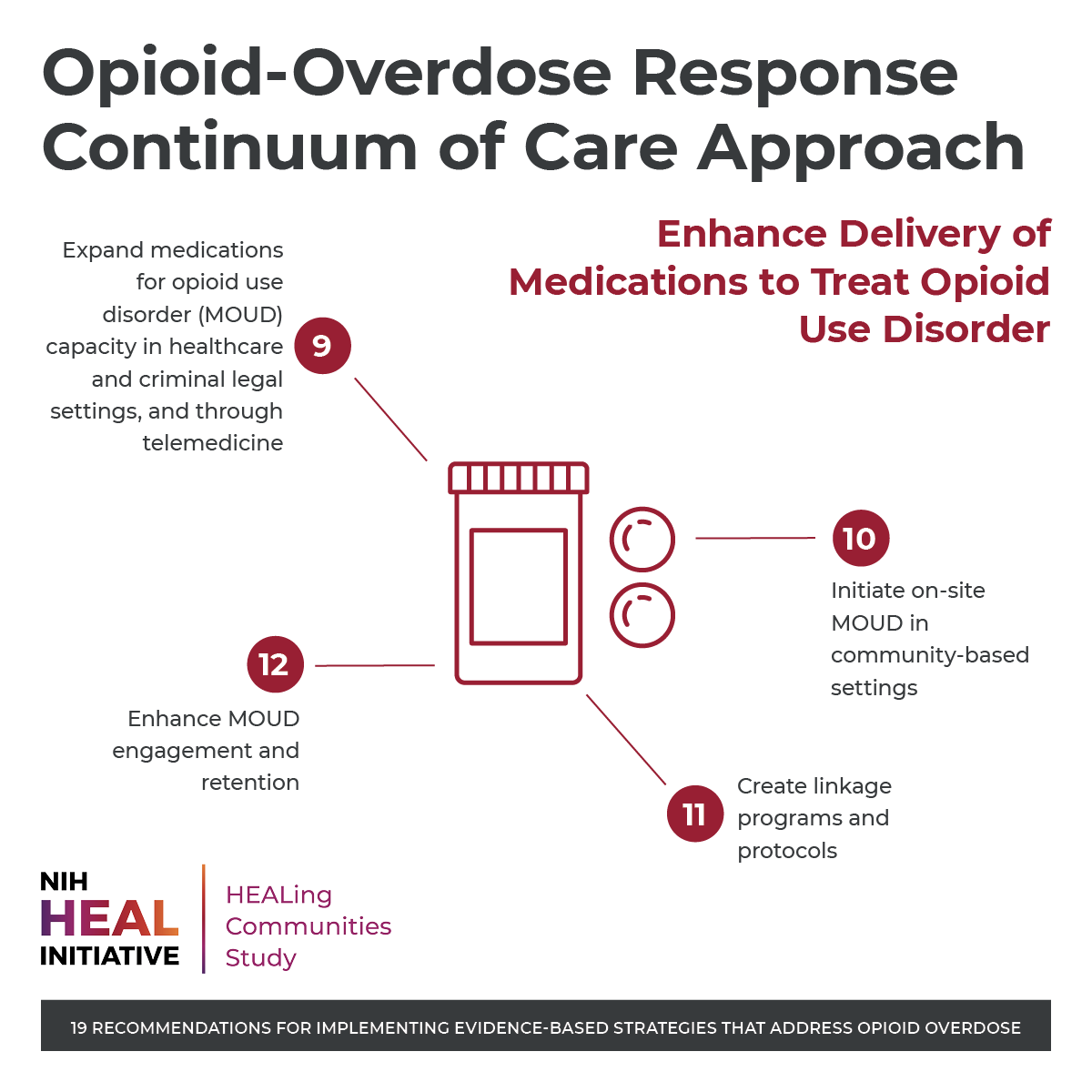
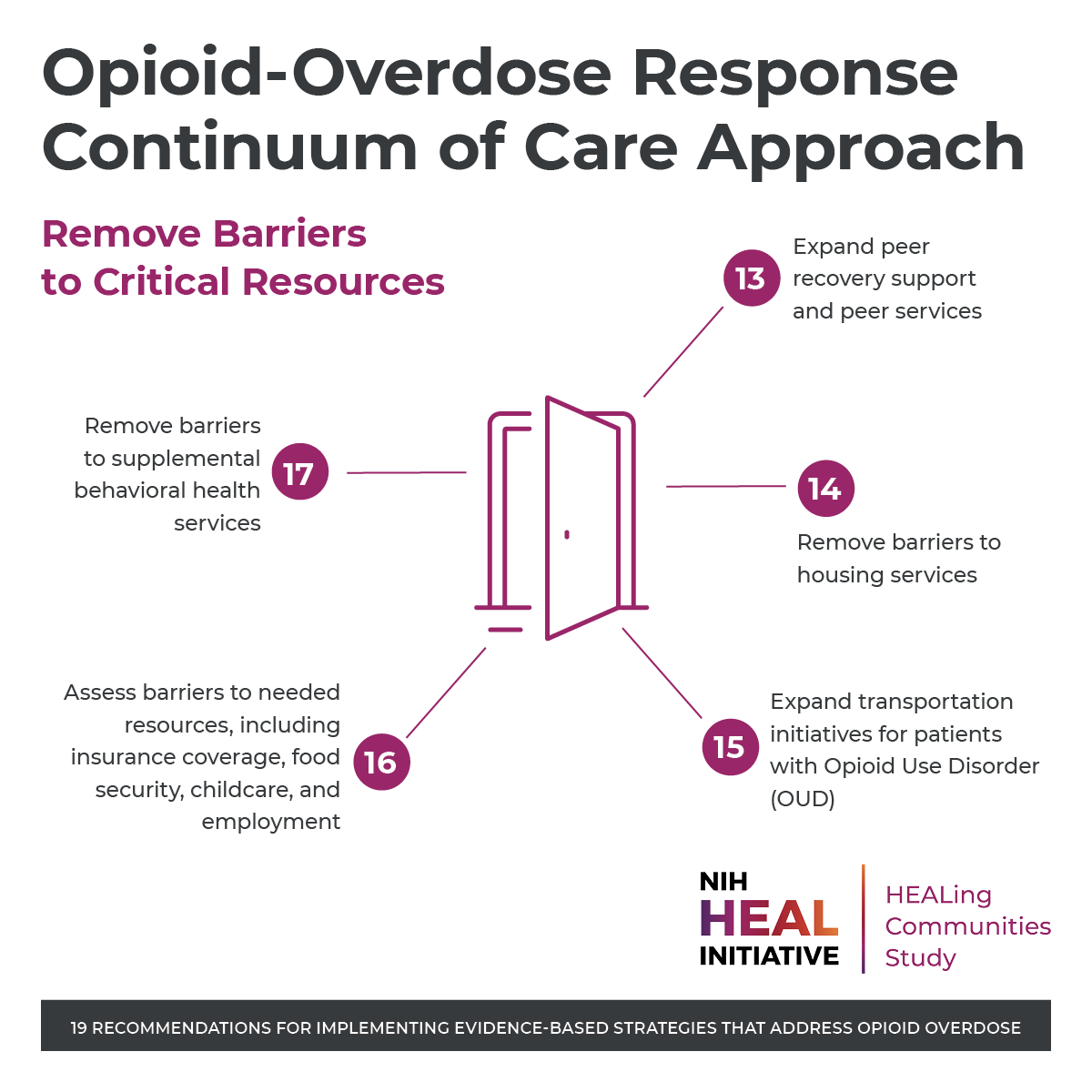
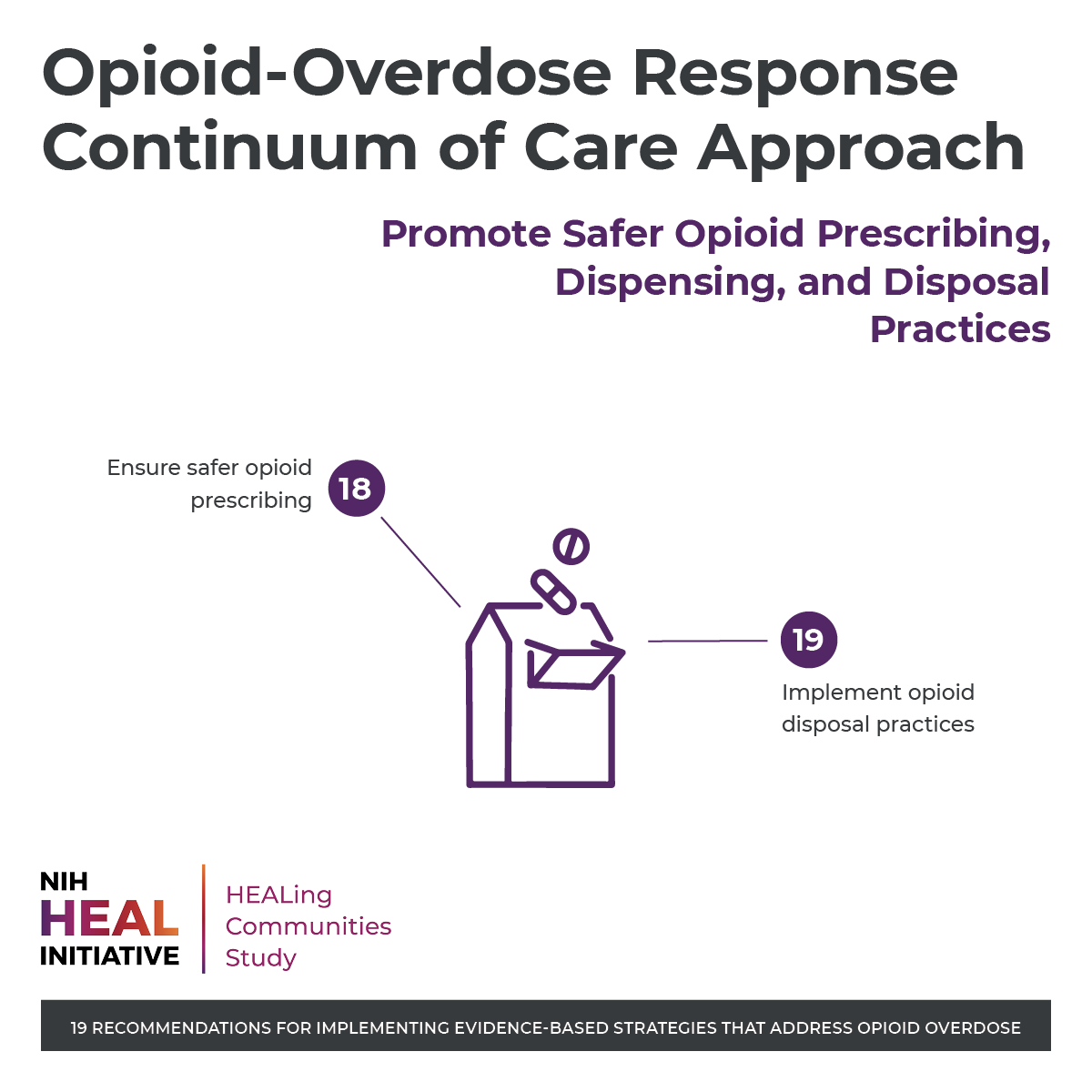
Addiction Policy Forum, which released the guide, is part of the HEAL Connections Center, working with NIH HEAL Initiative® to translate HEAL research into action. The center’s goals are twofold: to create pathways to further build and sustain community partnerships, and to support HEAL researchers in meaningfully sharing results with communities and stakeholders that will benefit most from research findings.
"We are heartened to see this work live on nationally so that decision- and policymakers with communities may take advantage of the hard work of the HEALing Communities Study investigators, staff and community partners," said Timothy Hunt, Associate Director of SIG. "The ORCCA Menu and this guide provide a rare summary of evidence-based practices and implementation strategies known to have impact on reducing overdose fatalities. We hope that lives will be saved as a result of this tool and the description of innovative strategies the practice guide contains. Policies and required funding streams may be mapped onto these practices and strategies so that sustained approaches may be adopted in vulnerable communities. We have a long way to go in combating the impacts of addiction and to reducing overdose risks associated with a toxic drug supply in our country. This tool can help focus our efforts needed for a crisis response."
